#South African team
Explore tagged Tumblr posts
Text
Esprit de Corps - When [Kim's] finished with the front page, he scans the local box scores. The Stormers lost again, 17-32. He shakes his head and checks his watch. It's time to get back to it...
Kim Kitsuragi - "*You* could reach the Coalition and have your talk about *la responsabilité*... *I* could grow 10 centimetres and become a flanker for the Stormers."
Titus Hardie - "The Stormers can't play for shit."
so kim is canonically a fan of a team called the "stormers"? guessing rugby based on "flanker".
mileage may vary on "fan". based on titus' line too, i am envisioning them as revachol's absolutely dogshit home team that every vacholiere has a long-suffering fondness for...
#de tag#there is also a real life south african rugby team called the stormers and im like#squints at DE and all its odd cultural references. is this coincidence or intentional.......#disco elysium
288 notes
·
View notes
Photo
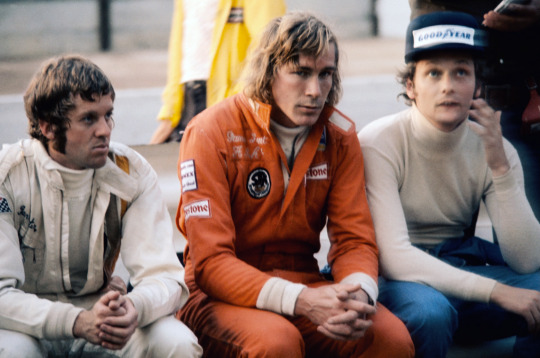
ian scheckter, james hunt, and niki lauda // kyalami, south africa - march 30, 1974 📷 lat photographic / motorsport images
#niki lauda#james hunt#ian scheckter#f1#vintage f1#classic f1#ferrari#hesketh#team gunston#1974#1970s#kyalami#south africa#south african gp 1974#1974 south african gp
32 notes
·
View notes
Text
yknow what time it is-

team dark time baBIEEE
+ some bonus hog sketches

#the team dark prompt i gave myself was: pov you were mean to cream#plus- im really happy with my hedgehog style it's going way off model and i love that they're so fluffy look at them!!! : D#and to those who are curious im basing shadow off of a south african hedgehog cuz they're cute and i thought it was fitting design-wise#he's extra fluffy now >: D#same with silver- i just turned the fluff meter up to maximum cuz they deserve it#enjoy : )#sonic the hedgehog#shadow the hedgehog#silver the hedgehog#rouge the bat#e 123 omega#team dark#193#193.characters#555
23 notes
·
View notes
Text
MOROCCO WORLD CUP SEMI FINALIST!!!!!
#not even england winning can ruin my mood today#anyway they should do france next!! they’re my favorite european team but since i found out about that shit mbappe said……#he deserves to lose to an african or south american country methinks#a.txt#world cup
22 notes
·
View notes
Text
I’m that weird kind of trans where I’m like really really obviously trans if you meet me in the men’s bathroom but to 90% of the people I meet including people who know my (male) name I am read as a woman with short hair and I can’t decide if that’s a good thing or not
#this comes from the very nice security guard at work doing a bit with me where he asked for my license to push the stock trolley#and he called me ma’am (he was also doing a very bad apparently scottish accent as part of the bit so I didn’t really mind)#(he’s south african so you can imagine how that accent went)#I like most of the security team I’m just not sure how many know I’m trans and how many think I’m a woman#my own post#draft saved January 19th
2 notes
·
View notes
Text
i would love to write a 911 rugby world cup fic (because the world cup fever is real) but the bitch in me doesn’t want to write the us rugby team because like????? who would play rugby for the us when u see the teams who’ve actually qualified for the rwc
#what if i make buck irish and eddie like. south african#and in between playing for two of the greatest teams in the world they kiss in the changing rooms#in which i ramble
3 notes
·
View notes
Text
Supa Team 4 Spoiler-Filled Review
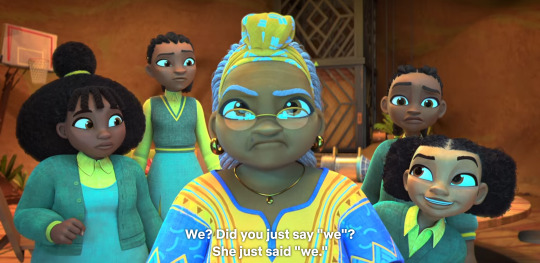
Supa Team 4 is a computer-generated superhero action-comedy series. Malenga Mulendema is the series creator and co-executive producer. Trigger Fish Animation Studios, known for the recent animated series Kiya and the Kimoja Heroes and Kizazi Moto: Generation Fire, and various television specials and films.
Reprinted from Pop Culture Maniacs and Wayback Machine. This was the forty-fifth article I wrote for Pop Culture Maniacs. This post was originally published on August 21, 2023.
This series shows its Zambian roots from the get-go, beginning in Zambia's capital, Lusaka. A reporter, Geoffrey (voiced by Sne Dladla) talks about a mysterious tornado striking the city. Former secret agent Mama K (voiced by Pamela Nomvete) brings together all the protagonists. They include a gutsy and agile girl with hair parted into two box-like sections named Temwe Chiti (voiced by Kimani Arthur) who is a bit of a juvenile delinquent" and troublemaker; a smart, organized, and creative techy girl named Komana Mwinga (voiced by Zowa Ngwira); a brainy, industrious, athletic, and tall girl named Zikomo "Zee" Phiri (voiced by Nancy Sekhokoane); and a physically strong, calm, and wise girl with an afro tied at the top named Monde Wamunyima (voiced by Namisa Mdlalose). Each has their own superhero names. Temwe is T-Mlilo, Komana is K-Bongo, Zee is Za-Mpezi, and Monde is M-Kozo.
In some ways, Supa Team 4 is like other teen superhero series in recent years (DC Super Hero Girls, She-Ra and the Princesses of Power, and Young Justice) and classic series from the 2000s (Static Shock and My Life as a Teenage Robot). It comes at a time there are is growing number of Black animated series, like Moon Girl and Devil Dinosaur, The Proud Family: Louder and Prouder, My Dad the Bounty Hunter, Craig of the Creek, Central Park, Iwájú (upcoming), Iyanu: Child of Wonder (upcoming), and Karma's World. The latter series ended in September 2022. There are indie animated series focusing on Black stories such as Defenders of Alodia, Jumbie, Captain Zero, LimeLight, and Diver: The Animated Series. Most are in development or on hiatus like Diver.
The difference with this series is that its stories are completely Zambian and said to be "something special for Zambians." Even so, it is relatable to everyone, like Kizazi Moto, a series primarily produced by the same animation studio. In both cases, the shows bode well for the development of the African animation industry. Supa Team 4, like Kizazi Moto, emphasizes the importance of family, Monde is close to her sister Marjory (voiced by Celine Tshika), sports (through Zee), and political corruption. City residents call for Mayor Sikazwe (voiced by Sne Dladla) to resign, which the villain exploits. Temwe's love of eating food may be relatable.
Like any other superhero series, there is a need for them to keep their real identities secret, even from those that they know well. This is accomplished through their transformation into superheroes wearing specialized super suits ala magical girl style. Unlike any other transformations I've seen, each transformation has upbeat music and a distinctive flair, making it stand apart.
All four girls are chosen after being watched for weeks. It echoes Jerry's reasoning for bringing in Sam, Alex, and Clover in Totally Spies! or "choosing" the Mew Mews in Tokyo Mew Mew New. Different from that series, Mama K lets the girls choose whether to be superheroes. The girls in that series were experimented on without their consent and forced into the superhero role. In this series, the girls have gadgets to entrap and defeat villains. Temwe's ribbon wand reminds me of Mega Pearl's weapon in Steven Universe Future or Cure Parfait's rainbow ribbon in Pretty Cure.
There is one other similarity between Tokyo Mew Mew New and Supa Team 4: the importance of preserving the environment. Komana builds a carbon-capture machine in the first episode, allowing her to capture a tornado. She receives a scholarship from Lee Magedzee (voiced by John McMillian), owner of a local energy company, Magedzee Power Corporation (MPC). He is impressed by her portable invention. It purifies carbon dioxide into safe carbon-based fuels. He later praises her solar-powered "smart art" that can charge phones and other devices.
Having an A.I. like T.O.M.I. (voiced by Thabe Ntebe), otherwise known as Technical Operations Management Interface, is not unique. Other series have featured A.I. as well. This A.I. is not a be-all-end-all. It is only one of the tools they use against villains, such as Storm Drain, Locus Pocus, Snap Back, Alley-Gator, Trash Man, Otherwise, I liked the role of Mama K's goat, Chomps (voiced by Gary Martin) throughout the series. It is even revealed that he is a secret agent!
Through the series, there is a push-and-pull of responsibilities to family and school. Temwe manifests this by her often run-ins with the school principal, Nkwashi (voiced by Abubakar Salim), who has it out for her. She gets suspended when Nkwashi thinks her ribbon wand might hurt someone. She later learns how to use her "hangry power" during battles rather than provoking Nkwashi's ire during the school day.
The series encourages viewers to believe Nkwashi is the shadowy villain, Bad Magz (voiced by John McMillian). There are hints. He has files on every student at Kamiji Secondary School. In the final episode, Temwe thinks that Nkwashi vanished like smoke. She is convinced he is the villain, after he declares she can't volunteer with Mama K (cover for their secret activities) if she fails a chemistry test. The girls don't buy her hair-brained explanation.
The series opening, first shown when the second episode begins, makes each episode pop. While the series music is by Ben Onono. Sampa the great does the theme music, in collaboration with Mag 44. It has to be one of the best opening sequences that I've seen in some time, and I watch a lot of anime series.
youtube
Following the first episode, Supa Team 4 turns to subjects like nanotech. The team reverse engineers some nanotech locusts for their own purposes. The obsession with popularity, homesickness (in the case of Monde and Marjory), garbage/rubbish collection, vlogging, value of art, education, and mind control are other topics. In the first half of the series, the villain is a shadowy figure not unlike the character of the same name in OK K.O.: Let's Be Heroes!. But, this person is more malicious.
He wants everyone in the city to lose electric power. This leads to random power cuts (load shedding) to compensate for electric energy loss after the hydroelectric dam is damaged. This allows Lee Magedzee to step in, declaring his wind farm will be upgraded and generate more electricity. At the same time, the villain exploits anger against the mayor for his own benefit. All the while, people hanker for more solar power.
Mama K has her own secrets. Formerly, she headed a crime-fighting team at the Intelligence Agency for Zambia (IAZ) and had the code name of Mkango. She, a computer expert named Rhino/Chipembele/Uncle Chi and a confidante (and inventive genius) named Towela, worked to bring down Chusi.
Even worse, this villain steals top-secret information, uploading the information to his mind, and destroys the original documents. As a result, the government didn't have access to their own intelligence! This ends sadly. Chusi used their device, the Brainstorm, to wipe the memories of Towela. It gives her amnesia. He also blinds Chi. Mama K is alone. The four protagonists cheer her up, convincing her they can all take down Chusi, also known as Bad Magz, together.
The Supa Team 4 season one finale blows everything wide open. Chusi gets, thanks to Professor Greenthumbs, some of the tech that Team 4 is using. Principal Nkwashi says that his own goal is to help Temwe. He is worried that she will become like him. He was a feisty and spirited kid who lacked focus. The four team members follow a Baobab tree to an abandoned mine. Greenthumbs deactivates their super suits, takes away their weapons, and pulls them into an underground lair! The biggest reveal is not that Nkwashi isn't the villain, but that Chusi is Lee Magedze!
This unexpected twist shows how devious the writers and animators were, leading the audience to believe that the Principal was the villain. The fact that Lee Magedze is the villain means he has the duality of being a Black leader who is trying to increase people's power and trying to take it away. My prediction is that he will attempt to unseat the mayor. The citizens would elect him if he ran on a Black empowerment platform. Once in office, he will have even more power, as the villain and the mayor.
There are reports that Supa Team 4 will have at least 25 episodes. In fact, the Director of Production at Triggerfish Animation Studios, Mike Buckland, confirmed a second season, writing "hold your breath for Season 2, because it just gets better from here." Such a season will undoubtedly continue to center on African stories, without any White characters, and remain relatable to Black girls and Zambians. The series may lean more into romance as well, as Zee's friend, Chipo Hamoonga (voiced by Daniel "KStar" Lyapa), has a crush on her, and a boy has a crush on Temwe.
Furthermore, the series may influence more Africans to tell their stories through animation, as they may see themselves, and their experiences represented, even as some Zambians claimed the character accents weren't authentic. Supa Team 4 is indicative of how collaboration is important in Africa, as the animation industry deals with many challenges, that "anyone from anywhere can be a superhero," and the great storytelling traditions on the continent. At the same time, I'm glad that the series was renamed from the original title ordered in 2019, Mama K's Team 4, as the current title makes the less about Mama K and more about the team.
Significantly, the series is dubbed in isiZulu. Mama K voiced by Linda Sokhulu. Many of the same voice actors re-appear. This dub promotes accessibility to a new audience. It provides the opportunity for people within South Africa, and other areas where Zulu is spoken, to connect with the characters within the series.
youtube
I find it funny that some complain about threats and violence in this series, since that is common in animation. Such complaints make the series appear more mature than the reality. It is more accurate to say Supa Team 4 is an all-ages series full of adventure, action, and humor, with a diverse cast. In addition, it defies oft-stereotypes of Africa. Others reported that the series draws visual inspiration from hip-hop girls groups and retro 1990s R&B groups. Malcolm Wope, an artist from Cameroon, does the visual design. The series has distinct characters, a real world but futuristic setting, while working through the girls' interpersonal issues.
Despite calls by Morrow for sharing the show, which she called a "project of passion," there is little chatter about the series on Reddit, and only one mature fanfiction written on July 30. There is more chatter on X/Twitter, with one account even as an unofficial fan page. Furthermore, on Tumblr, fans praised the show's animation, described the series as relatable, cute, have listed LGBTQ+ headcanons, drew fan art, and liked the magical girlesque transformations of the four protagonists. There may be chatter on other platforms, like Mastodon servers, but I am not personally aware of it.
Like they do with many series these days, Netflix did the fans of Supa Team 4 a disservice. All eight episodes dropped the same day on Netflix. While this makes it easy to binge the entire season, it creates a situation of catch-up among fans who run the risk of seeing spoilers on social media for episodes they haven't watched. This severly limits the possibility to discuss each episode without spoilers and can ruin pacing for a series. Netflix should have followed the model used for anime: dropping one episode each week. That would have allowed for more community to build around the show, than dropping it one day and moving on. It is irresponsible.
Although I wasn't familiar with series writers Ng'endo Mukii, Khadidiatou Diouf, Voline Ogutu, Maame Boateng, Omotunde Akiode, Tshepo Moche, or Gloria Huwiler, I knew of Vanessa Kanu. She directed the third episode/film of Kizazi Moto entitled "Moremi." It centered on the frailty of the human condition, family togetherness, and the value of one's soul.
Series director Dave Osburne, assistant director Tabitha O'Connell, production designer /art director Alessandro Chirico were names. I did not know series producer Ceri Barnes, head writer Amy Keating Rogers, and story editor Cindy Morrow either. Rogers worked on other girl-power series like The Powerpuff Girls and My Little Pony: Friendship. In addition, Osburne has worked on his share of animated series since the mid-1990s, as did O'Connell. At the same time, Chirico worked on Black Mirror, a series based upon The Twilight Zone. Barnes has been producer since the late 1990s.
For many voice actors, this may be their first voice role. Arthur previously voiced Willow in Nella the Princess Knight. MacMillan provided his voice for video game characters, as did Martin. Salim voiced Zanror in The Legend of Vox Machina. Animators have worked on series such as Kazazi Moto, Star Wars: Visions, and The Amazing World of Gumball, and films (Seal Team and Storks).
I excited to see where the series goes from here. Maybe Mama K will practice Nichiren Buddhism like her voice actor. Perhaps Zee will have Cuban roots like her voice actress or some of the main cast of Supa Team 4 will be queer. Looking through the social media of the protagonists, I am seriously doubting the latter.
In Zambia, same-sex sexual activity, for men and women, is illegal, a legal measure inherited from British control, and reportedly many queer people are closeted. Unfortunately, there is a slim chance for change. The Zambian High Court upheld acquittal of a human rights activist, who called for the country to recognize rights of sex workers and LGBTQ+ people, in 2013. However, a public opinion poll, released in 2010, indicated widespread disapproval of "homosexual behaviour."
Even so, the series is primarily produced in South Africa. After the end of apartheid, it outlawed discrimination based on sexual orientation. Furthermore, it is the only African state to legalize same-sex marriage. In addition, there are legal protections for LGBTQ+ people from discrimination in employment and elsewhere. At the same time, the creators may want to avoid making the series controversial and won't have any queer relationships so the show can appeal to all Zambians.
Ultimately, I hope Supa Team 4 reaches new heights in season 2. Maybe it will pave the way for African animation in the Africanfuturist, superhero, comedy, adventure, action, and other genres.
Supa Team 4 can be streamed on Netflix.
© 2023 Burkely Hermann. All rights reserved.

#supa team 4#netflix#black animation#african animation#zambian animation#south african animation#zambia#lusaka#triggerfish#indie animation#homophobia#zulu#load shedding#south africa#dubbing#reviews#pop culture#pop culture maniacs#repost
5 notes
·
View notes
Text
OMFG I JUST SAW SOUTH AFRICA MADE IT TO THE ROUND OF 16 IM GONNA CRY CONGRATULATIONS TO THE THE ENTIRE TEAM 😭😭😭😭🫶🏽🫶🏽🫶🏽🫶🏽🫶🏽
#god i was watching the highlights#WHAT A GAME#GOODNESS WHAT A TEAM#im not even south african but i feel so deeply for them#south africa wnt
4 notes
·
View notes
Text
first african country to make it to the semi-finals. first non-european / non-south american team in the semi-finals since 2002.
#wc 2022#literally insane. fuck yeah for morocco#rip ronaldo and portugal but i am HERE for an african nation win#non-european / south american team fans gotta find solidarity here
10 notes
·
View notes
Photo
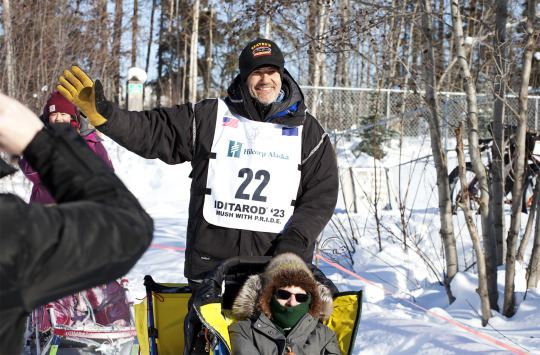

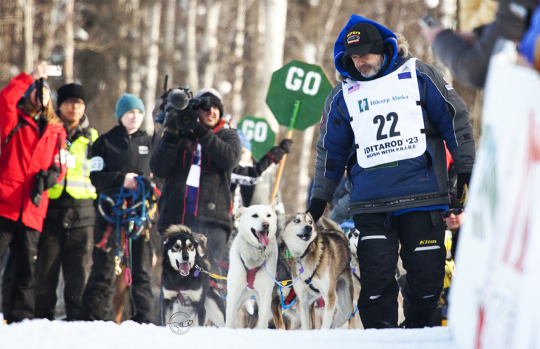
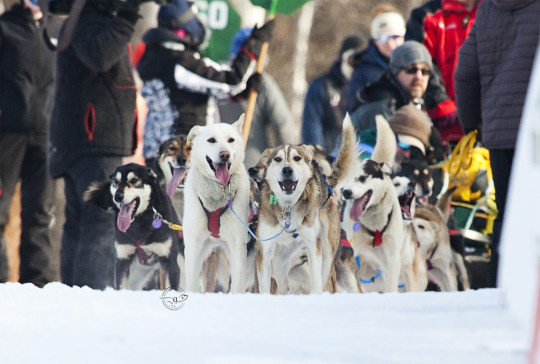
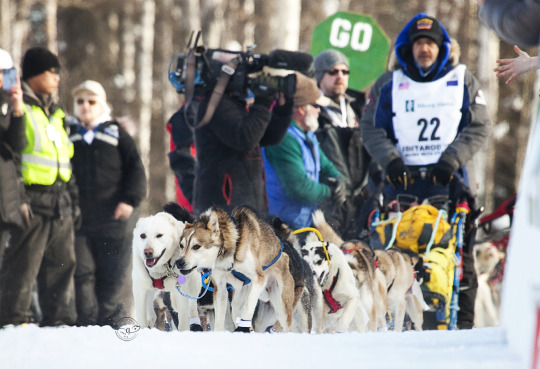
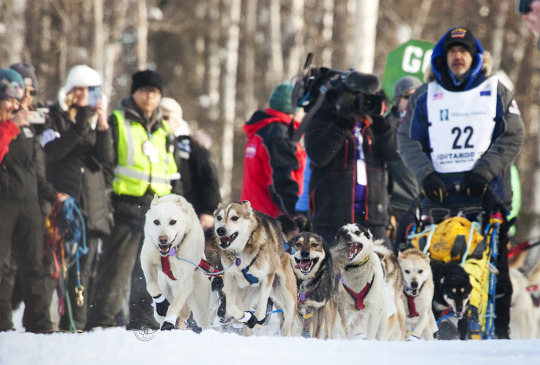

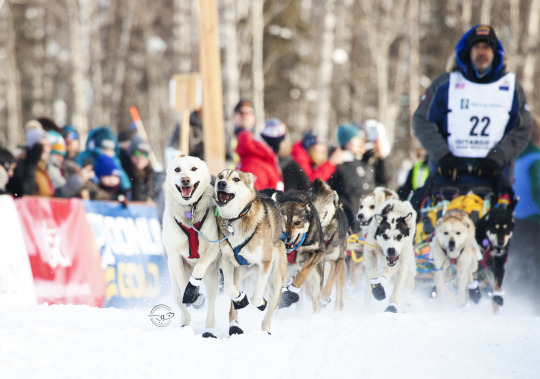

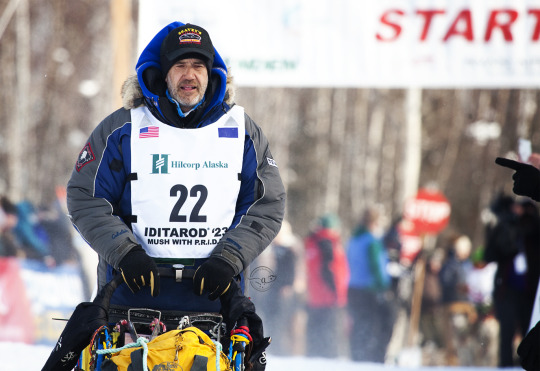
Second year rookie Gerhardt Thiart at the ceremonial and restart of Iditarod 51. He had some unfinished business after scratching last year in the Topkok Hills in the middle of a windstorm. Thiart broke his leg and could not continue, but he got a great helicopter ride to Nome! Thiart DID finish this year and is now the first South African to have finished the race. Gerhardt ran a team out of Mitch Seavey’s kennel.
#gerhardt thiart#south africa#south african#gat foundation#team seavey#iditarod#iditarod 51#iditarod 2023#iditarod51#iditarod2023#mushing#dog mushing#sled dogs#mush love dogs#alaskan husky#huskies#yes I took these pictures#photography by antonia#alaska#alaska sports#dog sports#winter sports#sport photography#sports photography#alaska photography#dog photography
3 notes
·
View notes
Text
2024 olympians representing non country of residence Part 2
Burundi: Egide Ntakarutimana, athletics (Siena, Italy) Cambodia: Apsara Sakbun, swimming (Terre Haute, Indiana) Cameroon: Sarah Hanffou, table tennis (Roubaix, France) Canada: Félix Auger-Aliassime, tennis (Monte Carlo, Monaco); Simi Awujo, soccer (Atlanta, Georgia); Alex Baldoni, canoeing (Pau, France); Janine Beckie, soccer (Douglas County, Colorado); Matt Berger, skateboarding (Huntington Beach, California); Blake Broszus, fencing (San José, California); Corey Conners, golf (Jupiter, Florida); Leylah Fernandez, tennis (Boynton Beach, Florida); Brooke Henderson, golf (Naples, Florida); Ilya Kharun, swimming (Las Vegas, Nevada); Rory Linkletter, athletics (Flagstaff, Arizona); Simon McTavish, canoeing (Sydney, Australia); Anicka Newell, athletics (Albuquerque, New Mexico); Shallon Olsen, gymnastics (Tuscaloosa, Alabama); Sydney Pickrem, swimming (Dunedin, Florida); Miloš Raonić, tennis (Monte Carlo, Monaco); Taylor Ruck, swimming (Scottsdale, Arizona); Cordano Russell, skateboarding (Carlsbad, California) & Alena Sharp, golf (Phoenix, Arizona) Cape Verde: Victor Alvares, fencing (Reims, France); Samuel Freire, athletics (Lisbon, Portugal); Ivanusa Moreira, boxing (Porto, Portugal); Jayla Pina, swimming (Seekonk, Massachusetts); Djamila Silva, judo (Lisbon, Portugal) & José Tati, swimming (Cape Town, South Africa) Central African Republic: Nadia Guimendego, judo (Nantes, France) Chad: Israel Madaye, archery (Lausanne, Switzerland) Chile: Kristel Köbrich, swimming (Córdoba, Argentina); Joaquín Niemann, golf (Jupiter, Florida) & Guillermo Perreira, golf (Jupiter, Florida) Taiwan: Cheng-Tsung Pan (Bellevue, Washington) & Chun-An Yu (Scottsdale, Arizona) Colombia: Ángela Barón, soccer (Keller, Texas); Luisa Blanco, gymnastics (Dallas, Texas); Nico Echavarría, golf (St. Johns County, Florida); René López, equestrian (Saint-Pierremont, France); Catalina Pérez, soccer (Boca Raton, Florida) & Camilo Villegas, golf (Jupiter, Florida) Comoros: Andy Barat, canoeing (Sablé-Sur-Sarthe, France) & Maesha Saadi, swimming (Vienne, France) Cook Islands: Alex Beddoes, athletics (Rotorua, New Zealand) Croatia: Petra Martić, tennis (Freeport, The Bahamas); Ivan Martinović, handball (Vienna, Austria); Nikola Mektić, tennis (Freeport, The Bahamas); Mate Pavić, tennis (Freeport, The Bahamas); Josip Šarac, handball (Ljubuški, Bosnia & Herzegovina); Marin Šipić, handball (Bad Sodern, Germany); Mario Šoštarič, handball (Slovenj Gradec, Slovenia); Donna Vekić, tennis (Monte Carlo, Monaco) & Elena Vorobeva, sailing (Kolomna, Russia) Cyprus: Elena Kulichenko, athletics (Odintsovo, Russia); Denis Taradin, sailing (Moscow, Russia) & Alex Tofalides, fencing (London, U.K.) Czech Republic: Julia Kopecký, cycling (Leiden, The Netherlands) Denmark: Nikoline Laidlaw, rowing (Dunblane, U.K.); Jacob Olesen, golf (Dubai, U.A.E.); Sofie Østergaard, rowing (London, U.K.) & Caroline Wozniacki-Lee, tennis (Miami-Dade County, Florida) Djibouti: Aden-Alexandre Houssein, judo (Paris, France) Dominica: Thea LaFond, athletics (Montgomery County, Maryland); Warren Lawrence, swimming (Zurich, Switzerland) & Jasmine Schofield, swimming (Sierra Vista, Arizona) Dominican Republic: Edison Azcona, soccer (Boca Raton, Florida); Enrique Bösl (Kösching, Germany); José De La Cruz, soccer (Rubí, Spain); José de León, soccer (Madrid, Spain); Victoria Garza, diving (Saltilla, Mexico); Peter González, soccer (Madrid, Spain) Nelson Lemaire, soccer (Schaarbeek, Belgium); Fabian Messina, soccer (Stuttgart, Germany); Heinz Mörschel, soccer (Frankfurt, Germany); Rafael Núñez, soccer (Madrid, Spain); Edgar Pujol, soccer (Sabadell, Spain); Ariana Rodríguez, volleyball (Miami, Florida); José Ruvalcaba, diving (León De Los Aldama, Mexico); Joao Urbáez, soccer (Móstoles, Spain); Óscar Ureña, soccer (Figueres, Spain) & Xavier Valdez, soccer (Faribault, Minnesota) Ecuador: Anicka Delgado, swimming (Los Angeles, California); Julio Mendoza, equestrian (Tryon, North Carolina); Tomás Peribonio, swimming (Miami, Florida) & Nicolas Wettstein, equestrian (Basel, Switzerland)
#Sports#National Teams#Burundi#Races#Italy#Cambodia#Indiana#Cameroon#Tennis#France#Canada#Monaco#Soccer#Georgia#Boats#Colorado#Fights#Golf#Florida#Nevada#Arizona#Australia#New Mexico#Alabama#Cape Verde#Portugal#Massachusetts#South Africa#Central African Republic#Chad
0 notes
Text
instagram
#tyla#team SA#south africa#mzansi#BET#awards#bet awards#winner 🏆🥇🏆#choreography#amapiano#moves#tyla moves#Africa#African Superstars#artists#artists on tumblr#2024#bet awards 2024#music#dance#dancers#Instagram
0 notes
Text
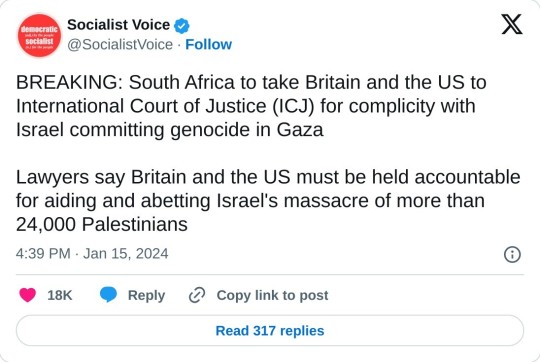
When he told the people around him about filing a lawsuit, Rensburg said he received a lot of support. "Many lawyers decided to join us in the lawsuit. Many of those who have joined are Muslims, but I am not. They feel obligated to assist this cause, but I believe that what is happening is incorrect." What happened in Iraq is an example of this, he said, noting that no one held the US accountable for the crimes it committed in the Middle Eastern country as the issue was not given the necessary importance.But now people believe what is happening in Palestine is an ideal scenario for the legal process to be carried out, the South African lawyer said, adding that "the US is busy spending more money and more resources to (allow Israel) commit the crime.” “No one says stop, enough is enough," he remarked. Rensburg said the genocide case filed by South Africa against Israel at the ICJ will serve as a guide for their case against the US and UK, and that they will begin the process based on the outcome of the case and the steps to be taken by the United Nations.
#yemen#jerusalem#tel aviv#current events#palestine#free palestine#gaza#free gaza#news on gaza#palestine news#news update#war news#war on gaza#south africa#icj hearing#icj#joe biden#rishi sunak#endisraelsgenocide#gaza genocide
14K notes
·
View notes
Text
Extra failing at trivia this week. Only 11 teams but I'm at the bottom after round three. No real chance of going higher. Not my week for categories which is surprising considering last week I had sport, flags, AND geography which I suck at.
#but there were a few more teams last week#15 then vs 11 now#thank you taskmaster nz for giving me the south African flag knowledge but it didn’t come up
0 notes
Text
Ask an older generation of white South Africans when they first felt the bite of anti-apartheid sanctions, and some point to the moment in 1968 when their prime minister, BJ Vorster, banned a tour by the England cricket team because it included a mixed-race player, Basil D’Oliveira. After that, South Africa was excluded from international cricket until Nelson Mandela walked free from prison 22 years later. The D’Oliveira affair, as it became known, proved a watershed in drumming up popular support for the sporting boycott that eventually saw the country excluded from most international competition including rugby, the great passion of the white Afrikaners who were the base of the ruling Nationalist party and who bitterly resented being cast out. For others, the moment of reckoning came years later, in 1985 when foreign banks called in South Africa’s loans. It was a clear sign that the country’s economy was going to pay an ever higher price for apartheid. Neither of those events was decisive in bringing down South Africa’s regime. Far more credit lies with the black schoolchildren who took to the streets of Soweto in 1976 and kicked off years of unrest and civil disobedience that made the country increasingly ungovernable until changing global politics, and the collapse of communism, played its part. But the rise of the popular anti-apartheid boycott over nearly 30 years made its mark on South Africans who were increasingly confronted by a repudiation of their system. Ordinary Europeans pressured supermarkets to stop selling South African products. British students forced Barclays Bank to pull out of the apartheid state. The refusal of a Dublin shop worker to ring up a Cape grapefruit led to a strike and then a total ban on South African imports by the Irish government. By the mid-1980s, one in four Britons said they were boycotting South African goods – a testament to the reach of the anti-apartheid campaign. . . . The musicians union blocked South African artists from playing on the BBC, and the cultural boycott saw most performers refusing to play in the apartheid state, although some, including Elton John and Queen, infamously put on concerts at Sun City in the Bophuthatswana homeland. The US didn’t have the same sporting or cultural ties, and imported far fewer South African products, but the mobilisation against apartheid in universities, churches and through local coalitions in the 1980s was instrumental in forcing the hand of American politicians and big business in favour of financial sanctions and divestment. By the time President FW de Klerk was ready to release Mandela and negotiate an end to apartheid, a big selling point for part of the white population was an end to boycotts and isolation. Twenty-seven years after the end of white rule, some see the boycott campaign against South Africa as a guide to mobilising popular support against what is increasingly condemned as Israel’s own brand of apartheid.
. . . continues at the guardian (21 May, 2021)
#israel#palestine#gaza#south africa#i think all of us need to seriously study the history and actions of the anti-apartheid movement#and apply these lessons to the israeli occupation
3K notes
·
View notes
Text
"Since it was first identified in 1983, HIV has infected more than 85 million people and caused some 40 million deaths worldwide.
While medication known as pre-exposure prophylaxis, or PrEP, can significantly reduce the risk of getting HIV, it has to be taken every day to be effective. A vaccine to provide lasting protection has eluded researchers for decades. Now, there may finally be a viable strategy for making one.
An experimental vaccine developed at Duke University triggered an elusive type of broadly neutralizing antibody in a small group of people enrolled in a 2019 clinical trial. The findings were published today [May 17, 2024] in the scientific journal Cell.
“This is one of the most pivotal studies in the HIV vaccine field to date,” says Glenda Gray, an HIV expert and the president and CEO of the South African Medical Research Council, who was not involved in the study.
A few years ago, a team from Scripps Research and the International AIDS Vaccine Initiative (IAVI) showed that it was possible to stimulate the precursor cells needed to make these rare antibodies in people. The Duke study goes a step further to generate these antibodies, albeit at low levels.
“This is a scientific feat and gives the field great hope that one can construct an HIV vaccine regimen that directs the immune response along a path that is required for protection,” Gray says.
-via WIRED, May 17, 2024. Article continues below.
Vaccines work by training the immune system to recognize a virus or other pathogen. They introduce something that looks like the virus—a piece of it, for example, or a weakened version of it—and by doing so, spur the body’s B cells into producing protective antibodies against it. Those antibodies stick around so that when a person later encounters the real virus, the immune system remembers and is poised to attack.
While researchers were able to produce Covid-19 vaccines in a matter of months, creating a vaccine against HIV has proven much more challenging. The problem is the unique nature of the virus. HIV mutates rapidly, meaning it can quickly outmaneuver immune defenses. It also integrates into the human genome within a few days of exposure, hiding out from the immune system.
“Parts of the virus look like our own cells, and we don’t like to make antibodies against our own selves,” says Barton Haynes, director of the Duke Human Vaccine Institute and one of the authors on the paper.
The particular antibodies that researchers are interested in are known as broadly neutralizing antibodies, which can recognize and block different versions of the virus. Because of HIV’s shape-shifting nature, there are two main types of HIV and each has several strains. An effective vaccine will need to target many of them.
Some HIV-infected individuals generate broadly neutralizing antibodies, although it often takes years of living with HIV to do so, Haynes says. Even then, people don’t make enough of them to fight off the virus. These special antibodies are made by unusual B cells that are loaded with mutations they’ve acquired over time in reaction to the virus changing inside the body. “These are weird antibodies,” Haynes says. “The body doesn’t make them easily.”
Haynes and his colleagues aimed to speed up that process in healthy, HIV-negative people. Their vaccine uses synthetic molecules that mimic a part of HIV’s outer coat, or envelope, called the membrane proximal external region. This area remains stable even as the virus mutates. Antibodies against this region can block many circulating strains of HIV.
The trial enrolled 20 healthy participants who were HIV-negative. Of those, 15 people received two of four planned doses of the investigational vaccine, and five received three doses. The trial was halted when one participant experienced an allergic reaction that was not life-threatening. The team found that the reaction was likely due to an additive in the vaccine, which they plan to remove in future testing.
Still, they found that two doses of the vaccine were enough to induce low levels of broadly neutralizing antibodies within a few weeks. Notably, B cells seemed to remain in a state of development to allow them to continue acquiring mutations, so they could evolve along with the virus. Researchers tested the antibodies on HIV samples in the lab and found that they were able to neutralize between 15 and 35 percent of them.
Jeffrey Laurence, a scientific consultant at the Foundation for AIDS Research (amfAR) and a professor of medicine at Weill Cornell Medical College, says the findings represent a step forward, but that challenges remain. “It outlines a path for vaccine development, but there’s a lot of work that needs to be done,” he says.
For one, he says, a vaccine would need to generate antibody levels that are significantly higher and able to neutralize with greater efficacy. He also says a one-dose vaccine would be ideal. “If you’re ever going to have a vaccine that’s helpful to the world, you’re going to need one dose,” he says.
Targeting more regions of the virus envelope could produce a more robust response. Haynes says the next step is designing a vaccine with at least three components, all aimed at distinct regions of the virus. The goal is to guide the B cells to become much stronger neutralizers, Haynes says. “We’re going to move forward and build on what we have learned.”
-via WIRED, May 17, 2024
#hiv#aids#aids crisis#virology#immunology#viruses#vaccines#infectious diseases#vaccination#immune system#public health#medicine#healthcare#hiv aids#hiv prevention#good news#hope#medical news
919 notes
·
View notes